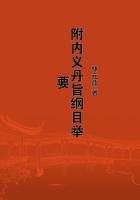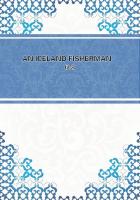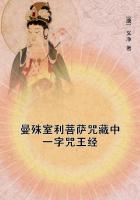A new morality has burst upon us with some violence in connection with the problem of strong drink; and enthusiasts in the matter range from the man who is violently thrown out at 12.30, to the lady who smashes American bars with an axe. In these discussions it is almost always felt that one very wise and moderate position is to say that wine or such stuff should only be drunk as a medicine.
With this I should venture to disagree with a peculiar ferocity.
The one genuinely dangerous and immoral way of drinking wine is to drink it as a medicine. And for this reason, If a man drinks wine in order to obtain pleasure, he is trying to obtain something exceptional, something he does not expect every hour of the day, something which, unless he is a little insane, he will not try to get every hour of the day. But if a man drinks wine in order to obtain health, he is trying to get something natural; something, that is, that he ought not to be without; something that he may find it difficult to reconcile himself to being without. The man may not be seduced who has seen the ecstasy of being ecstatic; it is more dazzling to catch a glimpse of the ecstasy of being ordinary.
If there were a magic ointment, and we took it to a strong man, and said, "This will enable you to jump off the Monument,"doubtless he would jump off the Monument, but he would not jump off the Monument all day long to the delight of the City.
But if we took it to a blind man, saying, "This will enable you to see,"he would be under a heavier temptation. It would be hard for him not to rub it on his eyes whenever he heard the hoof of a noble horse or the birds singing at daybreak. It is easy to deny one's self festivity; it is difficult to deny one's self normality.
Hence comes the fact which every doctor knows, that it is often perilous to give alcohol to the sick even when they need it.
I need hardly say that I do not mean that I think the giving of alcohol to the sick for stimulus is necessarily unjustifiable.
But I do mean that giving it to the healthy for fun is the proper use of it, and a great deal more consistent with health.
The sound rule in the matter would appear to be like many other sound rules--a paradox. Drink because you are happy, but never because you are miserable. Never drink when you are wretched without it, or you will be like the grey-faced gin-drinker in the slum;but drink when you would be happy without it, and you will be like the laughing peasant of Italy. Never drink because you need it, for this is rational drinking, and the way to death and hell.
But drink because you do not need it, for this is irrational drinking, and the ancient health of the world.
For more than thirty years the shadow and glory of a great Eastern figure has lain upon our English literature.
Fitzgerald's translation of Omar Khayyam concentrated into an immortal poignancy all the dark and drifting hedoni** of our time.
Of the literary splendour of that work it would be merely banal to speak;in few other of the books of men has there been anything so combining the gay pugnacity of an epigram with the vague sadness of a song.
But of its philosophical, ethical, and religious influence which has been almost as great as its brilliancy, I should like to say a word, and that word, I confess, one of uncompromising hostility.
There are a great many things which might be said against the spirit of the Rubaiyat, and against its prodigious influence.
But one matter of indictment towers ominously above the rest--a genuine disgrace to it, a genuine calamity to us. This is the terrible blow that this great poem has struck against sociability and the joy of life. Some one called Omar "the sad, glad old Persian."Sad he is; glad he is not, in any sense of the word whatever.
He has been a worse foe to gladness than the Puritans.
A pensive and graceful Oriental lies under the rose-tree with his wine-pot and his scroll of poems. It may seem strange that any one's thoughts should, at the moment of regarding him, fly back to the dark bedside where the doctor doles out brandy.
It may seem stranger still that they should go back to the grey wastrel shaking with gin in Houndsditch.
But a great philosophical unity links the three in an evil bond.
Omar Khayyam's wine-bibbing is bad, not because it is wine-bibbing.
It is bad, and very bad, because it is medical wine-bibbing. It is the drinking of a man who drinks because he is not happy.
His is the wine that shuts out the universe, not the wine that reveals it.
It is not poetical drinking, which is joyous and instinctive;it is rational drinking, which is as prosaic as an investment, as unsavoury as a dose of camomile. Whole heavens above it, from the point of view of sentiment, though not of style, rises the splendour of some old English drinking-song--"Then pass the bowl, my comrades all, And let the zider vlow."For this song was caught up by happy men to express the worth of truly worthy things, of brotherhood and garrulity, and the brief and kindly leisure of the poor. Of course, the great part of the more stolid reproaches directed against the Omarite morality are as false and babyish as such reproaches usually are. One critic, whose work I have read, had the incredible foolishness to call Omar an atheist and a materialist. It is almost impossible for an Oriental to be either; the East understands metaphysics too well for that.
Of course, the real objection which a philosophical Christian would bring against the religion of Omar, is not that he gives no place to God, it is that he gives too much place to God.
His is that terrible theism which can imagine nothing else but deity, and which denies altogether the outlines of human personality and human will.
"The ball no question makes of Ayes or Noes, But Here or There as strikes the Player goes;And He that tossed you down into the field, He knows about it all--he knows--he knows."A Christian thinker such as Augustine or Dante would object to this because it ignores free-will, which is the valour and dignity of the soul.

